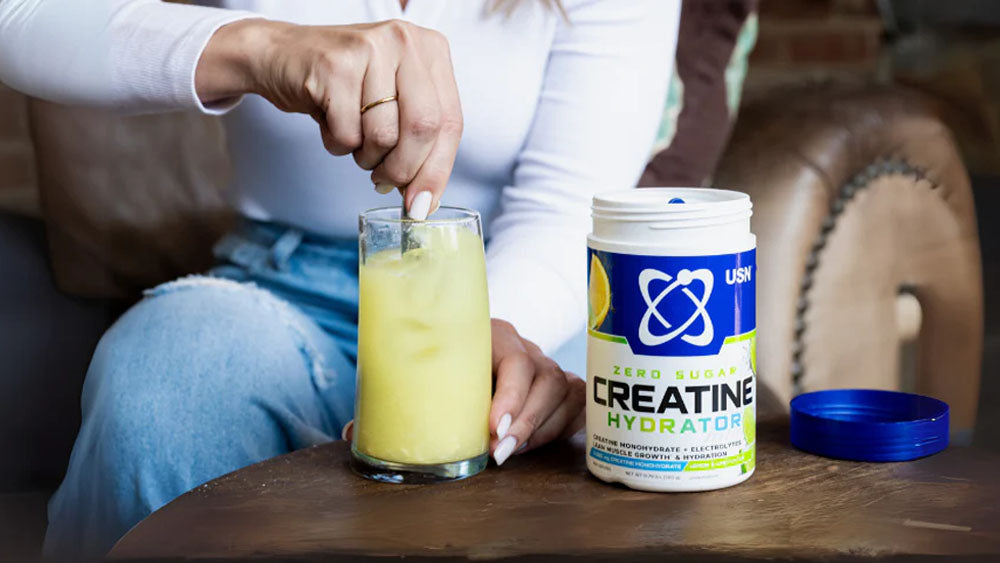When you hear "creatine," you likely think of muscle growth and peak athletic performance. This popular supplement is well-known for enhancing energy production in muscles, helping athletes build strength and improve endurance. But did you know that creatine might also have a surprising impact on mental health?
In this article, we’ll explore the intriguing connection between creatine and mental health, including its potential role in boosting brainpower, stabilizing mood, and even protecting the brain from damage.
What is Creatine?
Creatine is a naturally occurring compound found in muscles, made from three amino acids. It plays a crucial role in energy production, which is why it's widely used to enhance physical performance. Athletes and fitness enthusiasts rely on creatine supplements to build strength, improve endurance, and aid muscle recovery.
However, recent studies suggest that creatine's benefits extend beyond the gym. Researchers are now investigating its potential to support cognitive function and mental well-being.
Creatine’s Effects on Mental Health
Although commonly associated with physical performance, creatine may also offer surprising benefits for brain health. Let’s explore how it could impact cognitive function, mood, and neuroprotection.
Cognitive Function
Did you know that creatine might help sharpen your mind? Emerging research suggests that creatine supplementation can enhance cognitive function by providing additional energy to the brain. Some studies indicate that creatine may improve short-term memory, reaction time, and executive function, particularly during mentally demanding tasks.
Mood Regulation
Creatine’s role in mood regulation is another promising area of study. Evidence suggests that creatine may help stabilize mood by supporting neurotransmitter production, including dopamine and serotonin—key chemicals responsible for emotional well-being. By increasing brain energy levels, creatine might help alleviate symptoms of mood disorders such as depression and anxiety, potentially leading to a more balanced emotional state.
Neuroprotective Properties
One of the most exciting potential benefits of creatine is its ability to protect the brain. Research indicates that creatine may safeguard neurons from oxidative stress and energy depletion—factors commonly linked to neurodegenerative diseases like Alzheimer’s and Parkinson’s. This suggests that creatine could be a valuable supplement for maintaining brain health as we age.
How to Use Creatine Safely
While creatine shows promise for mental health, it’s important to use it responsibly. Here are some key considerations:
- Dosage: A common dosage for creatine supplementation is 3-5 grams per day. Some fitness enthusiasts follow a ‘loading phase’ of 20 grams daily for 5-7 days, followed by a maintenance dose of 3-5 grams daily. It’s best to start with a lower dose and adjust based on individual response.
- Quality: Opt for high-quality creatine supplements from reputable brands to ensure purity and effectiveness.
- Hydration: Creatine can increase water retention in muscles, making proper hydration essential.
- Consultation: If you’re considering creatine for mental health purposes, consult a healthcare professional to ensure it’s suitable for your needs.
FAQs
Are there any risks associated with creatine and mental health?
Creatine is generally safe for most people, but potential side effects include digestive discomfort, muscle cramps, and dehydration if not taken with sufficient water. Individuals with pre-existing kidney conditions should consult a doctor before using creatine.
Does creatine help with dopamine production?
Yes, research suggests that creatine can enhance dopamine levels, a neurotransmitter associated with pleasure and motivation. By increasing brain energy, creatine may support dopamine production, leading to improved mood and cognitive function.
Can creatine be used for depression?
Some studies suggest that creatine may have antidepressant effects by boosting brain energy production and supporting neurotransmitter function. However, more research is needed to fully understand its role in treating depression.
Creatine is not just for muscle gains—it may also support mental well-being. As research continues, we may discover even more ways this powerful supplement benefits the brain.

